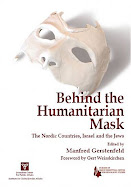Multiculturalism is an ode, completely, to the intellectual bankruptcy of the left.
Cultural relativism is pure ignorance and shuns reason.
By Mr Schwartz - ARI
The same intellectual forces that transformed the advanced civilization of Greece into the primitive society of medievalism are at work today. If allowed to succeed, they will drag us back, not just to the Dark Ages, but even further—to the wretched, primordial existence of the caveman.
What are these forces?
There are three versions of them in today’s culture—three manifestations of the view that the individual is incapable and unworthy of living, and that man should not rely upon reason as his sole means of knowledge. Religion is one obvious proponent of this view. But the ones I want to examine extensively are the other two: multiculturalism and environmentalism.
Now, religion does not really belong in this grouping, because it is far broader and more fundamental than the other two. Religion encompasses an entire, explicit philosophy of life. It has an explicit view of the nature of the universe, of man’s means of knowledge, of a systematic code of ethics. Whereas multiculturalism and environmentalism are, overtly, just political ideologies.
Nonetheless, I want to explain crucial similarities among them. I want to explain how religion’s explicit mysticism is mirrored by an implicit mysticism—a secular mysticism—on the part of both multiculturalism and environmentalism. I want to show how religion’s avowed opposition to individualism and to science is embraced by these other two viewpoints. And, most important, I want to demonstrate how the primitivism that results when religion comes to dominate a culture will occur in our own age if the doctrines of multiculturalism and environmentalism are allowed to prevail. . . .
So let us examine each of these doctrines closely, beginning with multiculturalism.
Every step man took in rising from the cave required the knowledge, not only of how to take that step, but of why it was a value—why it was a step forward. It was not enough for men to learn, for example, how to hunt with knives or spears; they had to evaluate this knowledge and conclude that hunting with weapons is better than hunting with bare hands. Across the entire span of history, man had to comprehend such truths—the truth that planting crops is better than foraging off the land, that indoor plumbing is better than outhouses, that electricity is better than candlelight, that science is better than superstition. Not just “different,” but better—objectively better.
The history of mankind is the history of the creation of values.
Mankind advanced only because some individuals originated better ways of doing things (and because the rest of society came to see the validity of those innovations). When some exceptional prehistoric man conceived the use of fire, he understood the advantage of cooked meat over raw meat. His achievement was not dismissed as the biased product of someone insensitive to those who may prefer their wooly mammoths uncooked. In order to advance, men had to discern that certain products had value—i.e., that they were worth creating, worth using and worth  defending.
defending.
The recognition that some things further human life and are therefore good, while other things do not and are therefore bad, is what made civilization possible. It is this premise which enabled manto progress from numerology to mathematics, from alchemy to chemistry—and from the cave to the skyscraper.
It is this progression that today’s multiculturalists wish to undo.
Nothing is objectively better than anything else, they assert.
Anyone who elevates Western civilization above primitive, voodooworshipping tribes—anyone who admires the skyscraper and scorns the cave—is a “Euro-centrist” looking at life through a distorting lens.
All cultures are equal, they argue; every culture is “different”—but none is superior.
What multiculturalism wants is not to “broaden” our knowledge of different cultures, but rather to nullify our evaluations of them.
Multiculturalism seeks to destroy our awareness of the objective value of a Western, or rational, way of life, and the disvalue of its opposite. . . .
***
From Mr. Schwartz’s essay “Multicultural Nihilism,” which is published in Ayn Rand’s book Return of the Primitive: The Anti-Industrial Revolution (published by Meridian in 1999, edited with an introduction and additional essays by Peter Schwartz).
Monday, November 17, 2008
Back to the Dark Ages?: Today’s Attacks on Reason, Individualism and Progress
Posted by
Rolf Krake
at
Monday, November 17, 2008
![]()
Subscribe to:
Post Comments (Atom)
































1 comment:
Well, seems like the idea of living like primitive cavemen has taken root among the leftists, maybe then they can live in a society matching their intellect and highest aspirations of utopia.
It's that simple: Exploit the Earth or Die!
Post a Comment